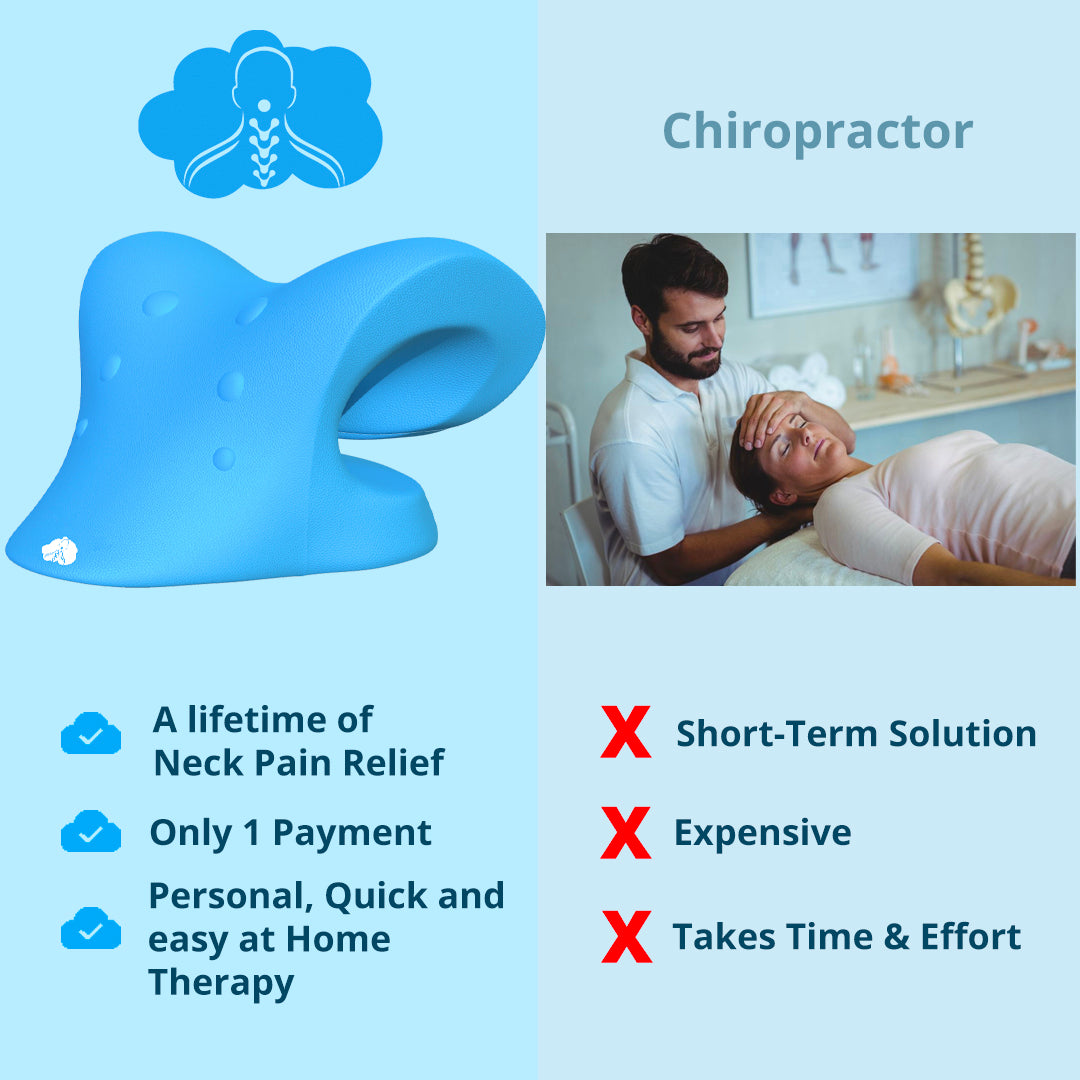Just How the Neck Cloud Can Help with Persistent Neck Discomfort and Stiffness
Just How the Neck Cloud Can Help with Persistent Neck Discomfort and Stiffness
Blog Article
The Effect of Anxiety on Neck Discomfort: Strategies for Minimizing Stress and Pain
In today's busy globe, it's clear that anxiety has ended up being a widespread consider the onset and exacerbation of neck discomfort. The complex connection between tension and muscle mass stress frequently leaves people looking for alleviation from the pain that ensues. By discovering targeted methods intended at minimizing tension and promoting leisure, one can begin to address the origin causes of neck pain and work towards an extra balanced state of well-being. Join us on a journey to decipher the effect of anxiety on neck pain and discover effective means to relieve pain and improve total lifestyle.
Comprehending Stress-Related Neck Pain
Neck discomfort is a common complaint that can commonly be credited to anxiety. Stress-related neck discomfort can manifest as tension, stiffness, or discomfort in the neck and shoulder area. The link in between tension and neck discomfort depends on the body's physical action to tension, which can lead to muscle mass stress and rigidity in the neck muscles. Persistent stress can cause relentless neck discomfort and exacerbate status quo like cervical spondylosis or muscle mass stress.

Identifying Common Tension Areas
Regularly experienced by individuals under tension, stress locations in the body can provide valuable understandings into the physical manifestations of mental strain. One common tension area is the neck, where anxiety often shows up literally. Stress frustrations, rigid neck muscle mass, and limited variety of motion prevail signs and symptoms of stress-related neck stress. The shoulders are another common location where stress accumulates. Anxiety can trigger the muscle mass in the shoulders to tighten up, bring about pain and pain. Furthermore, the top back is prone to tension build-up, especially in individuals that experience chronic stress and anxiety. Poor position and extended resting can aggravate tension around. The jaw is also a typical place for stress-related tension, as lots of people clinch their jaw or grind their teeth when worried. Being mindful of these usual tension areas can help people identify the physical indications of anxiety and take actions to address them before they rise into persistent discomfort or discomfort.
Applying Relaxation Methods
To successfully handle stress-related stress in the body, applying leisure methods is important. Leisure methods are beneficial tools for minimizing neck pain brought on by stress and anxiety. Deep breathing exercises can aid relax the mind and kick back tense muscular tissues in the neck and shoulders (neck cloud). Practicing mindfulness reflection can additionally be beneficial in alleviating stress and promoting relaxation. Dynamic muscular tissue relaxation, see here where you systematically stressful and after that kick back different muscle mass groups, can release built-up tension in the neck location. Furthermore, tasks like yoga exercise and tai chi integrate both physical movement and relaxation, making them reliable practices for reducing anxiety and neck discomfort. Taking routine breaks throughout the day to stretch and loosen up can avoid muscle mass rigidity and stress from accumulating. By integrating these leisure strategies right into your daily regimen, you can help handle anxiety levels, minimize stress in the neck, and alleviate discomfort related to stress-induced neck discomfort.
Integrating Self-Care Practices
Integrating self-care techniques is essential for keeping general well-being and handling stress-related neck discomfort successfully. Participating in normal physical task, such as gentle extending workouts or yoga exercise, can help relieve stress in the neck and shoulders. Exercising excellent posture throughout the day and taking constant breaks from prolonged resting or screen time can also prevent pressure on the neck muscle mass.
Moreover, focusing on appropriate rest and developing a consistent sleep regimen can add considerably to lowering tension degrees and advertising relaxation. Producing a calming bedtime routine, such as checking out a book or taking a cozy bathroom, can aid prepare the mind and body for peaceful rest. Additionally, keeping a balanced diet abundant in nutrients and staying hydrated can support general health and wellness and minimize swelling that might worsen click to read neck discomfort.
Including mindfulness techniques, such as deep breathing workouts or meditation, can assist handle tension and promote relaxation. Taking some time for oneself, taking part in pastimes, and setting boundaries to secure personal time are likewise important aspects of self-care that can add to reducing stress and alleviating neck discomfort.
Looking For Expert Assistance
Just how can people successfully resolve persistent neck discomfort that is influencing their life and wellness? Seeking professional aid can be an important action in handling and reducing neck pain. Consulting with health care specialists such as chiropractic specialists, physical specialists, or orthopedic specialists can supply valuable understandings and tailored treatment plans. These experts can carry out thorough assessments to diagnose the underlying sources of neck pain and recommend ideal interventions.
Chiropractics physician focus on spinal adjustment strategies to improve placement and lower tension in the neck area. Physiotherapists offer targeted exercises and stretches to enhance muscular tissues, improve adaptability, and improve total neck function. Orthopedic specialists can offer advanced medical treatments such as injections or medical choices for severe cases of neck pain.
Verdict

Stress-related neck discomfort can materialize as stress, rigidity, or discomfort in the neck and shoulder location. The connection between stress and anxiety and neck discomfort exists in the body's physical action to stress, which can result in muscle mass tension and tightness in the neck muscle mass. Stress headaches, rigid neck muscles, and limited range of motion are common signs and symptoms of stress-related neck stress. By including these leisure techniques right into your daily regimen, you can assist handle stress degrees, decrease stress in the neck, and reduce discomfort associated with stress-induced neck discomfort.

Report this page